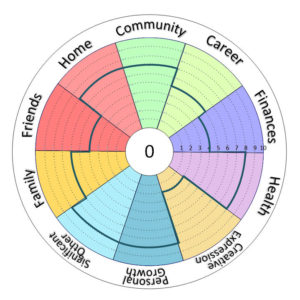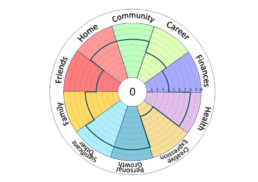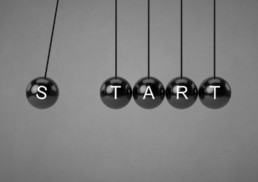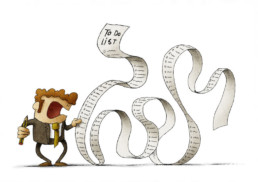ADHD Myths and Facts

MYTH: ADD/ADHD is just a lack of willpower. Persons with ADD/ADHD focus well on things that interest them; they could focus on any other tasks if they really wanted to.
FACT: ADD/ADHD looks very much like a willpower problem, but it isn’t. It’s essentially a chemical problem in the management systems of the brain.
MYTH: Everybody has the symptoms of ADD/ADHD, and anyone with adequate intelligence can overcome these difficulties.
FACT: ADD/ADHD affects persons of all levels of intelligence. And although everyone sometimes has symptoms of ADD/ADHD, only those with chronic impairments from these symptoms warrant an ADD/ADHD diagnosis.
MYTH: Someone can’t have ADD/ADHD and also have depression, anxiety, or other psychiatric problems.
FACT: A person with ADD/ADHD is six times more likely to have another psychiatric or learning disorder than most other people. ADD/ADHD usually overlaps with other disorders.
MYTH: Unless you have been diagnosed with ADD/ADHD as a child, you can’t have it as an adult.
FACT: Many adults struggle all their lives with unrecognized ADD/ADHD impairments. They haven’t received help because they assumed that their chronic difficulties, like depression or anxiety, were caused by other impairments that did not respond to usual treatment.
Source: Dr. Thomas E. Brown, Attention Deficit Disorder: The Unfocused Mind in Children and Adults
How Does Your Wheel Roll?
 Life balance. What does that even mean? Can you have a balanced life? If so, how?
Life balance. What does that even mean? Can you have a balanced life? If so, how?
First, how’s your life at the moment? There are several assessments to see if you are in or out of balance. Many coaches use a tool called the “Wheel of Life” for this.
Most of us express our thoughts, time, and energy in eight to ten different areas. The “Wheel of Life” gives you a way to rate your life in each of these areas. Personally, I use the following categories with my clients:

- Friends
- Personal Growth
- Family
- Community
- Health
- Career
- Home
- Finances
- Significant Other
- Creative Expression
Feel free to substitute school for career, or whatever other changes will accurately reflect the key components of your life. Once you have your categories, assess your current level of satisfaction in each area on a scale of 1-10. Your consideration is based on what that category means to you. For example, in the Significant Other category: you have a significant other and it’s a good relationship, so you give yourself a 9; or, you don’t have a partner and don’t want one, that can also be a 9. But if you’re not happy with your relationship, perhaps you give yourself a 3 or 4.
 This person is fairly pleased with their relationships with their home, community, health, significant other and personal growth. They are not satisfied with the relationships they have with friends, career and, finances, which indicates they would benefit from setting goals, deciding what is realistic. Family is another area they may wish to address.
This person is fairly pleased with their relationships with their home, community, health, significant other and personal growth. They are not satisfied with the relationships they have with friends, career and, finances, which indicates they would benefit from setting goals, deciding what is realistic. Family is another area they may wish to address.
Once you have all your numbers you can see if you’re balanced, such as all numbers fall between 7 and 9, or all between 4 and 7. Both ranges show balance, but only that first range shows satisfaction. Any area that indicates a satisfaction level of five or less would benefit from attention to bring it up. This means setting goals, creating plans to achieve them, scheduling and fulfilling action steps.
Do not expect to maintain balance once you reach it. Life has a way of changing and you can get out of balance without noticing. Personally, I re-do my wheel at the turn of every season.
-Sydney Metrick
And now for something completely different- and yet very relevant
I recently had a convergence of “Tales from Mexico” – a section of my newsletter – and something I would do an article on.
First, the Tale from Mexico: I got accepted to a group health insurance plan that included an in-person orientation. The discussion included conversation and forms on being prepared for life and death lakeside. (That’s where I live; around Lake Chapala.) That gave me the nudge I needed to talk with a local company about cremation services and make an appointment to get a will drawn up.
The same week I received the latest Notes from the Junk Drawer telling me all about the important documents I needed to have readily available in a “just in case” situation. Not a fun topic, true, yet one that is best faced when you are not in the middle of a crisis.
Just some of these documents include: Social Security card, birth certificate, marriage certificate, will and/or trust documents, banking information, attorney contact information, and insurance policies.
I strongly suggest you check out the article and spend a few minutes putting all those things in one place – and let your loved ones know where that place is.
-Sydney Metrick
Is paying attention working for you?
Does this ever happen to you? You have a great idea in the shower or while driving but completely forget about it before you can act on it. You put something in a place where you’re sure it will be safe and then forget where that place is. Despite putting it in your calendar, you forget an appointment or show up on the wrong date or time.
 These things happen to everyone from time to time, but with greater frequency, if you happen to have attention deficit disorder. Regardless, there are ways to improve your results.
These things happen to everyone from time to time, but with greater frequency, if you happen to have attention deficit disorder. Regardless, there are ways to improve your results.
Depending on the situation, having a notepad and pen so you can jot down ideas as soon as possible is a good idea. When I was teaching, a thought would pop up while I was talking about something else and I’d quickly note it on a pad for later. You can also capture thoughts with your phone. (Obviously, neither of these will work while you’re actually in the shower. And, please, don’t write and drive.)
On more than one occasion I’ve put money in safe places that my memory refused to recall. Rather than continuing to lose money and other valuables, I have created three places that I use as various safe spots – and only those three places.
The calendar is your friend. Use if for planning and as your memory. This is an amazing memory tool – just as long as you check it with frequency. At the end of the week, take a look at the coming week to get your bearings. Things change constantly, so check every evening, every morning and even though out the day. Just because you looked at the calendar in the morning doesn’t mean you will remember you have a 4:30 p.m. appointment.
Here’s a bonus tip: Some of you may recall the 30-second rule. If it takes 30 seconds or less for a task, it makes sense to just do it. That could be washing your coffee cup, putting your shoes away, or checking your calendar!
-Sydney Metrick
A "Kick in the Butt"
On a scale of 0 to 100, what percentage of what you say you want to “do,” “have,” or “be” actually comes to fruition? There is a big difference between saying what you want for yourself and taking the steps to make that your reality.
“The secret of success without hard work is … still a secret,” says Ivan Misner, founder of the world’s largest business networking organization, BNI.
As far as I know, fairy godmothers, genies, and elves exist only in fairy tales, so your successes are only to come about with commitment and efforts. That commitment and those efforts are stronger when you can clearly define your intentions and goals. Writing can help you crystallize your thinking:
- First, write down a specific goal you wish to achieve. Let’s say you want to be able to hold a simple conversation in Spanish by the end of the year.
- Second, what steps will you take to reach that goal? So, spend 30 minutes a day studying Spanish.
- Third, add what’s in it for you to achieve that goal. You won’t (overly) embarrass yourself when you are in Spain for business next year.
- Finally, what would your life be like and how would you feel if you “flaked.” Like an idiot in front of your colleagues.
 This is a good start, but to increase your likelihood of success, share goals and intentions with others. Let people around you know what you’ll be doing. The best person to tell is one that will hold you accountable. This is what a coach does. A coach helps you clearly define what you want, break the goal into manageable action steps, encourages you to calendar the steps and then, regularly checks in with you to see how it went and make any adjustments to the process.
This is a good start, but to increase your likelihood of success, share goals and intentions with others. Let people around you know what you’ll be doing. The best person to tell is one that will hold you accountable. This is what a coach does. A coach helps you clearly define what you want, break the goal into manageable action steps, encourages you to calendar the steps and then, regularly checks in with you to see how it went and make any adjustments to the process.
As a coach, I always ask clients to design how they like me to interact with them. Much of the time the answer is, “give me a kick in the butt.” That is so much easier when I know what I’m kicking you towards.
-Sydney Metrick
Re-Evaluating
What opportunities will you open up to in 2018?
This past Fall we said goodbye to California and moved to Mexico. Oh, and got married, too. For a person like myself with ADHD, the amount of details was overwhelming. Ordinarily, I would have said there is no way I could manage all the research involved with selling most of our possessions and our house, getting visas, planning a drive, and all the other details.
Yet, I did it.
We had decided to make this move a while ago, and now was the time. I gave up what I thought I was capable of and did what I needed to make the decision a reality.
Mexico is wonderful. But it is very different from California. Plus, we had to discover places to shop, eat, get things fixed. We needed to find doctors, dentists, lawyers, and friends. Think all that was challenging? Really, not so much. I know I am more capable than I thought I was. I can do without some of the things I thought were necessary (like Trader Joe’s), and I can learn just about any new thing with time and practice.
Perhaps you are holding some limiting stories about your capabilities and options based on your past or other people’s opinions.
The new year is a good time to re-evaluate your life. What from 2017 do you want to let go of? What will you develop further?
And the day came when the risk to remain tight in a bud was more painful than the risk it took to blossom.
– Anaïs Nin
– Sydney Metrick
Nudges
Are you familiar with “nudge theory?” In a recent newsletter from a colleague, nudge theory is described as “a way of encouraging people to do what’s in their best interest, even when other perfectly human tendencies—such as the urge to procrastinate—are conspiring against them.”
That newsletter nudged me into to writing this and sharing some of the hacks people with ADHD or other non-linear thinkers can use as nudges.
One of the best nudges is a timer. If you have a tendency to get lost in a task, setting a timer for how much time you realistically have to spend on it helps you be aware that “time is up.”

Sometimes, the best nudge is someone we admire pushing us in the right direction.
Having a staging area by the door is a way to nudge yourself to actually take with you the things you’ll need when you’re out. We have a key rack a few feet from the door. It makes it easy to hang the keys upon arriving and know where they are when we’re ready to leave.
I put a sticker on the first Monday of every month of my wall calendar. It reminds me to give our dog a flea treatment.
And then there’s Nudgemail, an easy to use reminder service that sends email prompts. This is an all-around life saver especially if you’re a busy person.
An accountability partner can be a great nudge. You each share something you want to accomplish or goal you want to attain, and you get to regularly ask each other how it’s going. (Sometimes receiving nudges is easier when you’re also giving them.)
I’m also a fan of the positive reminder. The brain is much more accepting of positive language than negative – so the next time you’re writing yourself to “Don’t forget …” try “Remember the …” instead.
Why change is so difficult
Do you remember Newton’s 1st Law of Motion? It says, an object at rest stays at rest and an object in motion stays in motion at the same speed and in the same direction unless acted upon by an unbalanced force. This is also known as the law of inertia.
Inertia. Something we all feel from time to time when we have a big project or task that feels difficult or boring. If you’re thinking inertia could be the sister of procrastination, you’d be right.
Inertia is also what makes life changes so difficult. You have a momentum going, maybe even for years, of being a certain way.

Once you get started, you can use your inertia to keep you moving in your new direction!
You do or do not do the things you’ve always done or not done. Maybe you really want to make a change, even a small change but it takes attention and practice. You need that unbalanced force Newton was so fond of.
For some, an outside force works best. Find someone willing to hold you accountable. Give them permission to check in with you regularly. An example conversation could be, “So, how’d it go with the task you intended to accomplish this week?” Then either, “Great, what helped you be successful with that?” or “Great, can you identify what got in the way? Can you avoid what got in your way last week, and be more successful this week?”
There’s an article in Entrepreneur Magazine entitled, 4 Cures for Chronic Procrastination, that nicely breaks down the process of getting through procrastination. In short:
- Narrow your focus
Just like eating an elephant, take it one bite at a time.
- Reward yourself for meeting your goals
Don’t push for perfection, if you’re doing it right more often than not, that’s a success!
- Hold yourself publicly accountable
There is nothing like knowing people are watching to keep you on task.
- Don’t lose momentum
Once you get started, keep moving!
– Sydney Metrick
Music and the Brain
“Nothing activates the brain so extensively as music,” said the late Oliver Sacks, M.D., neurologist, and author of Musicophilia. Music not only provides structure, it increases the level of dopamine in the brain. This is especially important for those with conditions like ADHD and Autism.
My friend, Ellen Hoffman, is an extraordinary woman. She’s a self-employed musician – pianist, composer, arranger, teacher, music director and producer who happens to also have attention deficit disorder. I talked with her about the amazing ways music can affect the brain and she shared the following story about a young autistic man, Ryan, she worked with at Napa State Hospital.
Like many autistic children, this boy was drawn to music. He loved listening to music – the radio, the record player, and especially to the piano. He had a sweet singing voice which had not changed yet. His favorite song to sing was Your Cheatin’ Heart. He knew all the words – even though he had no idea what they meant. He knew fragments of other songs, but this was the only song he knew all the way through. When he was in a good mood, he would sing the whole song, much like those of us who are not autistic might do.
Other than singing, he was generally non-verbal, rarely speaking more than a short sentence at a time. However, he was much more communicative thru music. If I asked him a question “Ryan, do you want a cookie?” and he was in a good mood, he would SING the answer, “Yes, I want a cookie” – in a melody all his own. Or “Ryan, how are you feeling right now?” His melodic answer might be, “Ryan is OK right now.”
I learned that if I sang to him, he was more likely to answer. If I played the piano AND sang, he was MUCH more likely to answer. The more I provided music for him, the more he related to me, and the less combative he was. Music calmed him down, made him almost happy, and improved his ability to relate to those around him, even for just a short time.
While ADHD is not nearly as extreme as Autism, music can still be vital to how someone with ADHD functions. I have one client who regularly listens to music while working. Her explanation: the music filters out the world so that she only has to filter out the music.
How music helps people with ADHD was perfectly summed up in an article I read recently called How Music Unlocked My Son’s ADHD Brain in ADDitude:
Music builds and strengthens the auditory, visual/spatial, and motor cortices of the brain. These areas are tied to speech and language, reading, reading comprehension, math, problem solving, brain organization, focusing, concentration, and attention issues.
-Sydney Metrick
Rambling Roads—the thought process of those with ADHD
Have you ever had a conversation with someone that didn’t end anywhere near the original destination? Or, maybe, you reached the original destination, just not directly.
 Some people are natural ramblers. One thought leads to another, which spurs a memory, and connects to a related story … all possibly off topic from where the conversation was originally headed.
Some people are natural ramblers. One thought leads to another, which spurs a memory, and connects to a related story … all possibly off topic from where the conversation was originally headed.
Then there’s thought distraction in which an outside comment, or something passing in the visual field, or even a sudden “pop up” of a “to do” can lead the conversation down an entirely different path.
You might also be, or know someone who is, a star at monopolization. One idea is so closely connected to the previous one, and they run together so swiftly that the other party can’t even begin to get a word in edgewise.
While rambling conversations do not require a participant to have ADHD, they are certainly more common in the ADHD world. We are especially good at blurting and interrupting – another aspect of rambling.
Perhaps something said by another triggers a thought for the person with ADHD, and the impulsivity common to those with ADHD means the thought that entered their head pops right on out of their mouth, with no filter mechanism.
These conversational journeys are not common to all who have attention deficit disorder, and do not happen in every conversation with those who do take them. Realize that anyone who has ADHD will never be neurotypical, which is defined as free from neurological atypical patterns of thought or behavior. Neurotypicals often assume that their experience of the world is the only one and the only correct one. They are wrong.
Solutions to What Might Ail You
Would you say you are easily distractible, either by things around you or competing thoughts in your head?
- Is impulsivity kind of a problem for you in relationships? Interrupting, blurting, being snappish?
- Do you get restless if you have to be in one place or focus on one less-than-fascinating thing for too long?
- Does your memory seem to be out of order when it comes to remembering names or appointments or … Hey, why am I in the kitchen anyway?
- What about time management? Do you find prioritizing a challenge? Is planning, short or long-term, a foreign concept?
Here are some tips:
Distractibility due to external factors may be addressed by finding or making a quiet spot to focus. Perhaps a white noise machine to minimize external sounds. Distracting thoughts can be important. If so, have a pad handy to jot them down for later.
 Impulsivity displayed as interrupting or blurting might also positively respond to the “I must take a note so that I remember” idea. You might also say something like, “Excuse me for interrupting, …” Snappish? Look at the common triggers and practice alternative responses.
Impulsivity displayed as interrupting or blurting might also positively respond to the “I must take a note so that I remember” idea. You might also say something like, “Excuse me for interrupting, …” Snappish? Look at the common triggers and practice alternative responses.
Restlessness takes many forms. Get familiar with your average attention span and give yourself permission to do things in short blocks of time, rotating between things that must be done. Take breaks – and return from them.
Memory issues are so frustrating, aren’t they? Calendars are a huge help. This means calendaring appointments, big tasks, and those things you want to do for yourself. Add both start and due dates for the project. Use your calendar as a commitment book and check it throughout the day.
A visible bulletin board with colored sticky notes and reminder alarms on your phone are other good tools.
If time management is one of your challenges, a calendar might help with this, too – provided you check it religiously. Setting phone reminders and responding to them can help. Also setting a timer, even a kitchen timer, for how much time you realistically can spend on a task keeps you from getting lost in hyperfocus. Finally, since it may be difficult to estimate how much time something will take, add a time cushion.
These are just a few of the tools that can make a difference…if you use them. The tool we all need to use is the honest desire to stay focused, not interrupt, remember what we’re doing, and keeping our time – if not the rest of us – organized.
If you have the desire, I have other tools I am happy to share with you. Just contact me.
-Sydney Metrick
Keep Track of Your Amazing Ideas and Precious Time
- You have a great idea in the shower and then forget it by the time you’re dressed.
- A task you thought might take an hour actually takes three.
- You sometimes get so caught up in one thing that you’re late for something else.
- Prioritizing your schedule to address every one of your “To Do’s” feels impossible.
I offer a wide array of life management tips: from budgeting your time like you do your money to a creating “Things to Not Do” list. However, tips can only get you so far – sometimes you need some extra tools in the toolbox as well.
Here are some simple and easy-to-use tools that I’ve already tried out and can recommend:

- Many of us do our best thinking in the shower, the problem is holding onto those ideas until you can act on them. Enter AquaNotes(www.myaquanotes.com), waterproof notepads that allow you to hold onto those ideas rather than rinsing them away with the shampoo. The 40 sheet, refillable pad suctions comes with a pencil and suction cups to hold them to your shower wall.
- Time Timer (www.timetimer.com) has a line of timers, watches, and applications that help you stay on track and on time.
- Planner Pads (www.plannerpads.com) offer an easy-to-use system that helps you organize, prioritize, and schedule in ways that make sense.
Even the websites are user-friendly. Check them out. Let me know if you start using any of them and tell me about your experience.
I’m also interested in knowing what other tools you recommend. Please let me know what works – and what doesn’t work – for you.
-Sydney Metrick
And now for something completely different…and yet very relevant
 I recently had a convergence of "Tales from Mexico" - a section of my newsletter - and something I would do an article on.
I recently had a convergence of "Tales from Mexico" - a section of my newsletter - and something I would do an article on.
First, the Tale from Mexico: I got accepted to a group health insurance plan that included an in-person orientation. The discussion included conversation and forms on being prepared for life and death lakeside. (That’s where I live; around Lake Chapala.) That gave me the nudge I needed to talk with a local company about cremation services and make an appointment to get a will drawn up.
The same week I received the latest Notes from the Junk Drawer telling me all about the important documents I needed to have readily available in a “just in case” situation. Not a fun topic, true, yet one that is best faced when you are not in the middle of a crisis.
Just some of these documents include: Social Security card, birth certificate, marriage certificate, will and/or trust documents, banking information, attorney contact information, and insurance policies.
I strongly suggest you check out the article and spend a few minutes putting all those things in one place – and let your loved ones know where that place is.
-Sydney Metrick
Keep Track of Your Amazing Ideas and Precious Time
 Do any of these sound familiar?
Do any of these sound familiar?
- You have a great idea in the shower and then forget it by the time you’re dressed.
- A task you thought might take an hour actually takes three.
- You sometimes get so caught up in one thing that you’re late for something else.
- Prioritizing your schedule to address every one of your “To Do’s” feels impossible.
I offer a wide array of life management tips: from budgeting your time like you do your money to a creating “Things to Not Do” list. However, tips can only get you so far – sometimes you need some extra tools in the toolbox as well.
Here are some simple and easy-to-use tools that I’ve already tried out and can recommend:

- Many of us do our best thinking in the shower, the problem is holding onto those ideas until you can act on them. Enter AquaNotes (www.myaquanotes.com), waterproof notepads that allow you to hold onto those ideas rather than rinsing them away with the shampoo. The 40 sheet, refillable pad suctions comes with a pencil and suction cups to hold them to your shower wall.
- Time Timer (www.timetimer.com) has a line of timers, watches, and applications that help you stay on track and on time.
- Planner Pads (www.plannerpads.com) offer an easy-to-use system that helps you organize, prioritize, and schedule in ways that make sense.
Even the websites are user-friendly. Check them out. Let me know if you start using any of them and tell me about your experience.
I’m also interested in knowing what other tools you recommend. Please let me know what works – and what doesn’t work – for you.
-Sydney Metrick
Solutions to What Might Ail You
- Would you say you are easily distractible, either by things around you or competing thoughts in your head?
- Is impulsivity kind of a problem for you in relationships? Interrupting, blurting, being snappish?
- Do you get restless if you have to be in one place or focus on one less-than-fascinating thing for too long?
- Does your memory seem to be out of order when it comes to remembering names or appointments or … Hey, why am I in the kitchen anyway?
- What about time management? Do you find prioritizing a challenge? Is planning, short or long-term, a foreign concept?
Here are some tips:
Distractibility due to external factors may be addressed by finding or making a quiet spot to focus. Perhaps a white noise machine to minimize external sounds. Distracting thoughts can be important. If so, have a pad handy to jot them down for later.
 Impulsivity displayed as interrupting or blurting might also positively respond to the “I must take a note so that I remember” idea. You might also say something like, “Excuse me for interrupting, …” Snappish? Look at the common triggers and practice alternative responses.
Impulsivity displayed as interrupting or blurting might also positively respond to the “I must take a note so that I remember” idea. You might also say something like, “Excuse me for interrupting, …” Snappish? Look at the common triggers and practice alternative responses.
Restlessness takes many forms. Get familiar with your average attention span and give yourself permission to do things in short blocks of time, rotating between things that must be done. Take breaks – and return from them.
Memory issues are so frustrating, aren’t they? Calendars are a huge help. This means calendaring appointments, big tasks, and those things you want to do for yourself. Add both start and due dates for the project. Use your calendar as a commitment book and check it throughout the day.
A visible bulletin board with colored sticky notes and reminder alarms on your phone are other good tools.
If time management is one of your challenges, a calendar might help with this, too - provided you check it religiously. Setting phone reminders and responding to them can help. Also setting a timer, even a kitchen timer, for how much time you realistically can spend on a task keeps you from getting lost in hyperfocus. Finally, since it may be difficult to estimate how much time something will take, add a time cushion.
These are just a few of the tools that can make a difference…if you use them. The tool we all need to use is the honest desire to stay focused, not interrupt, remember what we’re doing, and keeping our time – if not the rest of us – organized.
If you have the desire, I have other tools I am happy to share with you. Just contact me.
-Sydney Metrick
Rambling Roads—the thought process of those with ADHD
Have you ever had a conversation with someone that didn’t end anywhere near the original destination? Or, maybe, you reached the original destination, just not directly.
 Some people are natural ramblers. One thought leads to another, which spurs a memory, and connects to a related story … all possibly off topic from where the conversation was originally headed.
Some people are natural ramblers. One thought leads to another, which spurs a memory, and connects to a related story … all possibly off topic from where the conversation was originally headed.
Then there’s thought distraction in which an outside comment, or something passing in the visual field, or even a sudden “pop up” of a “to do” can lead the conversation down an entirely different path.
You might also be, or know someone who is, a star at monopolization. One idea is so closely connected to the previous one, and they run together so swiftly that the other party can’t even begin to get a word in edgewise.
While rambling conversations do not require a participant to have ADHD, they are certainly more common in the ADHD world. We are especially good at blurting and interrupting – another aspect of rambling.
Perhaps something said by another triggers a thought for the person with ADHD, and the impulsivity common to those with ADHD means the thought that entered their head pops right on out of their mouth, with no filter mechanism.
These conversational journeys are not common to all who have attention deficit disorder, and do not happen in every conversation with those who do take them. Realize that anyone who has ADHD will never be neurotypical, which is defined as free from neurological atypical patterns of thought or behavior. Neurotypicals often assume that their experience of the world is the only one and the only correct one. They are wrong.












